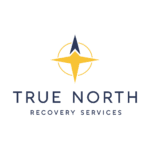Alcohol and anxiety often intertwine in a complex relationship, leading many individuals to self-medicate with alcohol to alleviate their anxiety symptoms. While this may provide temporary relief, it often perpetuates a harmful cycle that exacerbates both conditions. Understanding this relationship and exploring healthier coping mechanisms is crucial for breaking free from this cycle.
Understanding the Relationship Between Alcohol and Anxiety
Anxiety disorders are among the most common mental health conditions, characterized by excessive worry, fear, and nervousness. To manage these uncomfortable feelings, some individuals turn to alcohol, a central nervous system depressant, for its calming effects. This practice, known as self-medication, can lead to a temporary reduction in anxiety symptoms. However, over time, this approach can backfire, leading to increased anxiety and dependence on alcohol.
The Self-Medication Hypothesis
The self-medication hypothesis suggests that individuals use substances like alcohol to cope with psychological distress. In the context of anxiety, alcohol’s sedative properties may seem beneficial. However, this temporary relief can lead to a reliance on alcohol to manage anxiety symptoms, creating a vicious cycle where both anxiety and alcohol use disorder (AUD) reinforce each other.
The Vicious Cycle: How Alcohol Worsens Anxiety
While alcohol may initially reduce anxiety, its long-term effects can be detrimental.
Neurochemical Effects
Alcohol affects neurotransmitters in the brain, particularly gamma-aminobutyric acid (GABA) and glutamate. Initially, alcohol enhances GABA activity, producing calming effects. However, chronic alcohol use disrupts this balance, leading to increased anxiety during withdrawal periods. This phenomenon, sometimes referred to as “hangxiety,” highlights how alcohol can exacerbate anxiety symptoms over time.
Development of Dependence
Regular use of alcohol to manage anxiety can lead to tolerance, requiring more alcohol to achieve the same effect. This escalation increases the risk of developing AUD, further complicating the individual’s mental health and overall well-being.
Breaking the Cycle: Healthier Coping Mechanisms
Addressing both anxiety and alcohol use is essential for recovery. Implementing healthier coping strategies can significantly improve outcomes.
Cognitive Behavioral Therapy (CBT)
CBT is an evidence-based approach that helps individuals identify and modify negative thought patterns and behaviors contributing to anxiety and alcohol use. By developing healthier coping mechanisms, individuals can reduce their reliance on alcohol.
Mindfulness and Stress Reduction Techniques
Practices such as meditation, deep breathing exercises, and yoga can help manage anxiety symptoms without resorting to alcohol. These techniques promote relaxation and improve emotional regulation.
Physical Exercise
Regular physical activity has been shown to reduce anxiety and improve mood. A study by Xinjiang Normal University found that exercise can significantly help reduce alcohol dependence and improve mental and physical health. Incorporating activities like walking, jogging, swimming, or yoga into daily routines can serve as a healthy alternative to alcohol for managing anxiety.
Support Groups
Participating in support groups provides a sense of community and shared experience. Groups such as Alcoholics Anonymous (AA) offer peer support and accountability, which can be instrumental in recovery.
Professional Treatment Options
Seeking professional help is often necessary to address both anxiety and alcohol use disorder effectively.
Integrated Treatment Programs
Integrated treatment addresses both mental health disorders and substance use disorders simultaneously. This comprehensive approach ensures that both conditions are treated in a coordinated manner, improving the chances of successful recovery.
Medication-Assisted Treatment (MAT)
Certain medications can help manage withdrawal symptoms and reduce cravings. For example, naltrexone is an opioid antagonist that can reduce the rewarding effects of alcohol, aiding in the reduction of alcohol consumption.
The Role of True North Recovery Services
True North Recovery Services is a premier addiction treatment center that offers comprehensive care for individuals struggling with both mental health and addiction issues. Their integrated treatment programs are designed to address the complex relationship between anxiety and alcohol use, providing personalized care plans that include therapy, medication management, and holistic approaches to support long-term recovery.
Breaking the cycle of self-medication with alcohol requires a multifaceted approach that addresses both anxiety and alcohol use disorder. By understanding the relationship between these conditions and implementing healthier coping mechanisms, individuals can achieve lasting recovery and improved mental health.


